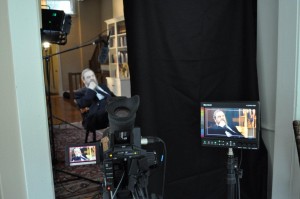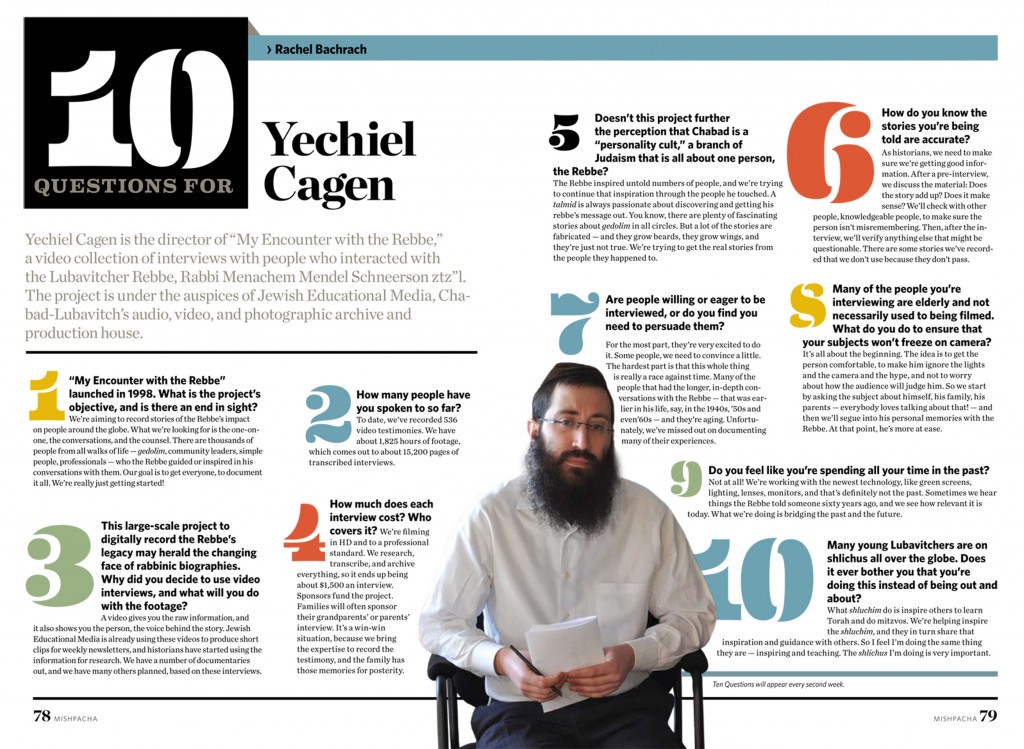Yesterday we went out to Wilmington, Delaware to interview Rabbi Dr. Immanuel Schochet who was by his daughter and son in law – the Vogel’s (Chabad Shluchim in Delaware) – for Shavuos.

The Schochet family spent war time in Switzerland, then moved to Holland, and finally came to Canada in 1951. Rabbi Schochet started his studies at Chabad Lubavitch Yeshiva in 1952.
We covered many topics in this important interview.
The well-known and scholarly Schochet family spent war time in Switzerland, then moved to Holland, and finally came to Canada in 1951. Rabbi Schochet studied at Chabad Lubavitch Yeshiva from 1952-1959. After his marriage in Toronto in 1961, the Rebbe encouraged him to pursue his University studies diligently, even supporting him financially with jobs from Merkos L’inyonei Chinuch in New York!
He wrote many many articles for Merkos, and translated and wrote many many books. There were many edits that the Rebbe made to his works, and many of them are in letters that he gave to be published in Igros Kodesh. He told us that after a couple years the edits were less and then non-existent – because he learned from his mistakes and learned the Rebbe’s style. One of the many memorable changes the Rebbe made was when he wrote a biography on the Baal Shem Tov. In the course of his research he quoted from many sources, not necessarily from Sifrei Chassidus, and sometimes from non-religious historians. The Rebbe was very vocal in opposing this style, telling him that although they are surely credible scholars, when it comes to a holy Tzaddik and a way of life that these authors do not conduct, their outlook and opinion simply cannot be accurate. On this topic, the Rebbe expected him to use sources that were only from the Rebbeim and credible Sifrei Chassidus.
The Rebbe’s office had an official translator named Uriel Tzimmer. He knew many many European languages, and when the Rebbe got a letter in a foreign language – that he didn’t know – Mr. Tzimmer would translate them (and the Rebbe would reply in English, Yiddish or Hebrew). After he passed away the Rebbe’s office contacted Rabbi Schochet and asked him if he could help out with translating letters in some languages (due to his European origin). He readily agreed. He also figured that it would be exciting work – you know, seeing firsthand what the Rebbe gets to see! In reality though, among the important correspondences, there was a lot of trivial matters and even ‘nudging’ and ‘kvetching’ that he came across. He asked the Rebbe if he could just give over the ‘jist’ of these letters instead of translating word for word all the kvetching, etc. The Rebbe absolutely refused – “You can tell many things from how the person wrote, and what else they wrote as a lead up to their issue. It will help analyze their problem, and give insight if there are other underlying issues that need to be addressed…”
Interestingly enough, he only once asked the Rebbe about a suggestion for how to deal with missionaries, and the Rebbe gave quite a vague answer – “Tell them that the Rambam also knew Tanach.” He explains it to mean that we must remind them that we have been studying Tanach for generations, it was written by Jews and for Jews and if you have a question, come ask a Jew! And the questions that you have, were raised and answered many, many generations ago, etc.
There are a many, many more nice anecdotes, and beautiful expressions of the Rebbe’s care that he shared, but this is off the top of my head.
Click ‘more’ for pictures. (more…)






